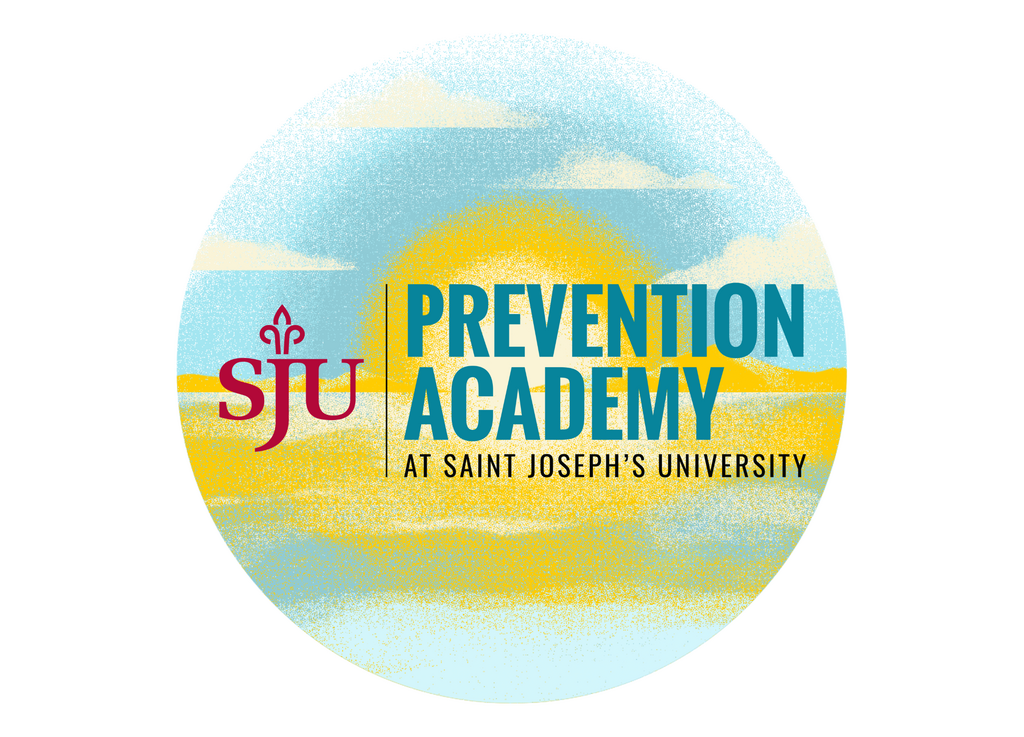
Maximizing Downtime
By: David Sherrell
I was going to open this piece on the role of mindfulness in maximizing your summer restfulness and energy resupply (and whatever other objectives you may have for resource replenishment) by telling you about how I used mindfulness to ensure that my wedding day was perfect. And I’ll get to that story, because it’s something I’m really glad I did and it helps illustrate my point. But I realized that I was skipping a step. I need first to explain to you where my studies in mindfulness truly originate: Master Qui-Gon Jinn.
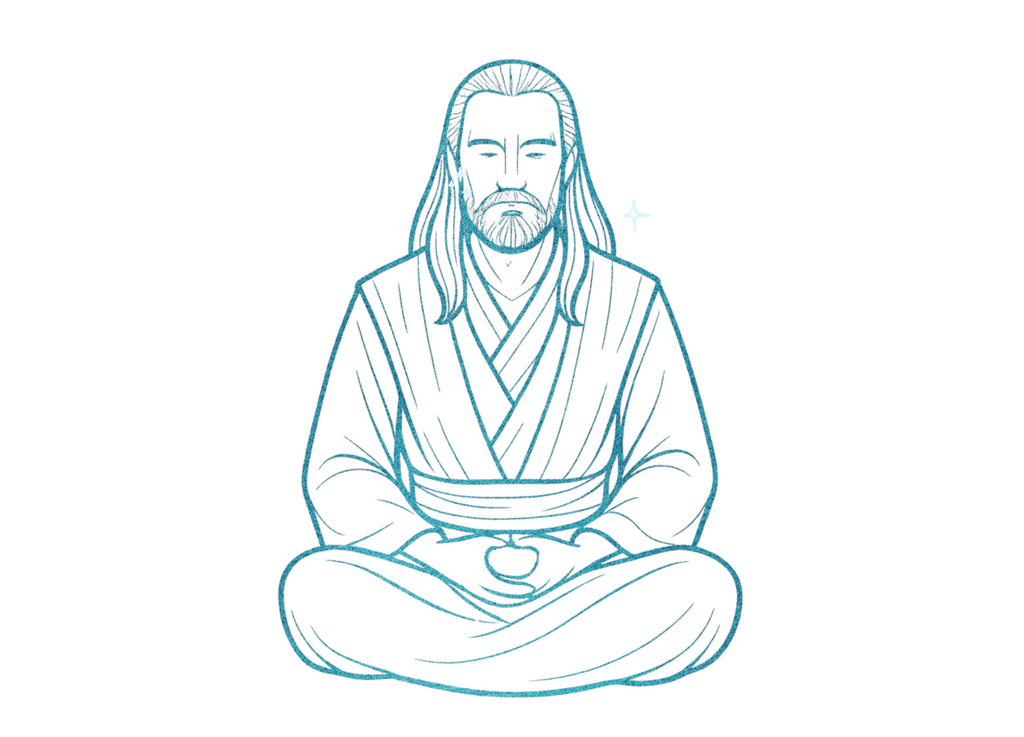
Yep, I’m a Star Wars guy since far back enough that the duel on Mustafar was a “lava-planet” twinkle in George Lucas’ eye and the prequel trilogy was even less of a plan – one most of us had lost hope in by a dozen years post-Return of the Jedi, when all we’d gotten was some books by this guy named Zahn about a guy named Thrawn. Around that time, Star Wars taught me to meditate. I’d had these guided meditation tapes I tried to follow starting around tenth grade, but none of them really helped me understand what meditation should feel like inside my mind and body. I didn’t get that part until I read a novel about Luke building a new Jedi Order – there was a scene of him leading a meditation with his new recruits that finally made the whole thing click for me.
When I meditate, I’m trying to silence the many automatic thoughts I often have – conscious thoughts that I didn’t will into existence, that are spontaneous, arise quickly, and frequently take up too much space in my head. Automatic thoughts can be positive or negative or neutral – I tend to meditate when they’re either particularly negative, or particularly rapid and I need to sort of slow my brain down.
When I entered recovery from Substance Use Disorder (SUD) many years later, I looked to the disciplined, centered mind of the Jedi when my counselors told me I should add “improve my spiritual condition” to the list of mental-health cleanup tasks that would help keep me from relapsing into further substance use and started guiding meditations meant to help us balance our emotional states.
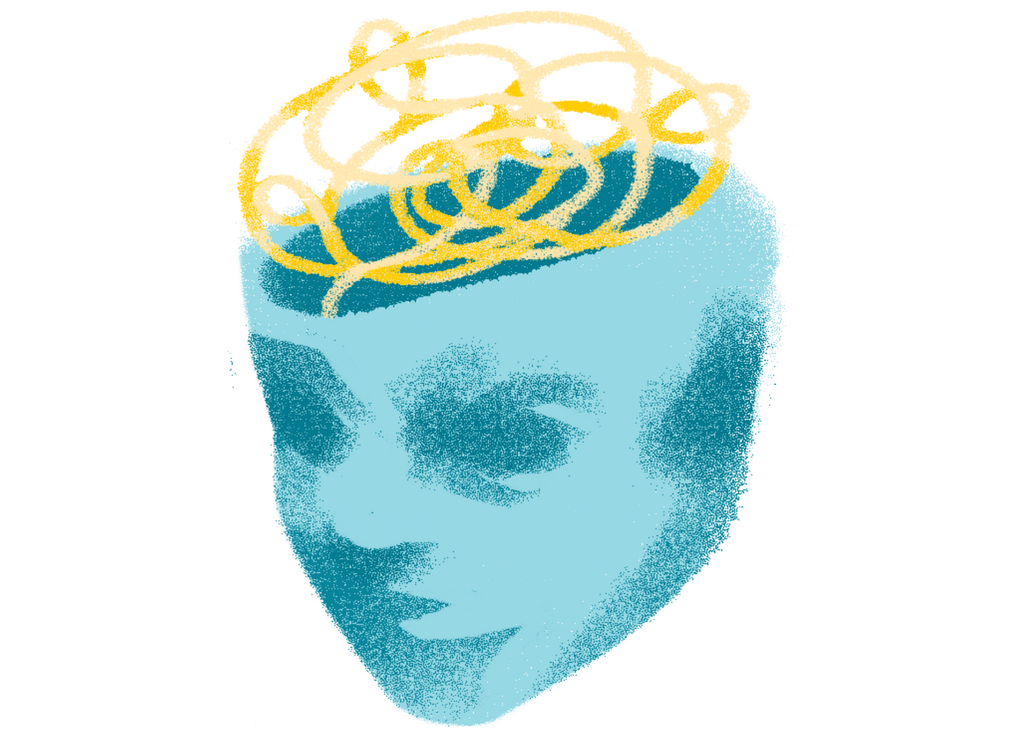
Then I thought of Master Qui-Gon, who kept telling his young Padawans to be mindful of things. The present moment. The Living Force. Their feelings. This frequently issued advice was about focusing attention. “Your focus determines your reality,” he told Anakin. The things you focus on – pay deliberate attention to, to the exclusion of other things – the things that take up the majority of your conscious mindspace, make up the code your brain uses moment-to-moment to hardwire itself. Emotions, automatic thoughts, impulses, things you don’t really have direct authorship over in your head: all of them become part of your brain’s definition of “reality” for that moment. What it means to be you, in that moment.
Most of us engage with reality in mostly healthy ways most of the time, which means our brains mostly have healthy material to use for that hardwiring. But we all experience exceptions to that. Times when we’re so worried about some element of our lives that it takes up a bunch of space in our heads, probably causing some pretty sizable anxiety and making it hard to focus on other things. This is when a traffic jam of negative automatic thoughts can rear their heads. Ever played Whack-a-Mole?
(If not, you should definitely do so – if your generation never stands at that rickety arcade cabinet with a weird foamy mallet, what analogy will we use for trying to stamp out a bunch of different problems popping up all over the place then hiding before we can deal with them?)
Wrestling the jam back into a reasonable flow of traffic can be quite the same challenge. Our reality becomes centered on that source of anxiety until it’s resolved one way or another. A major transition; a new romantic interest that may or may not be interested back; The Future.
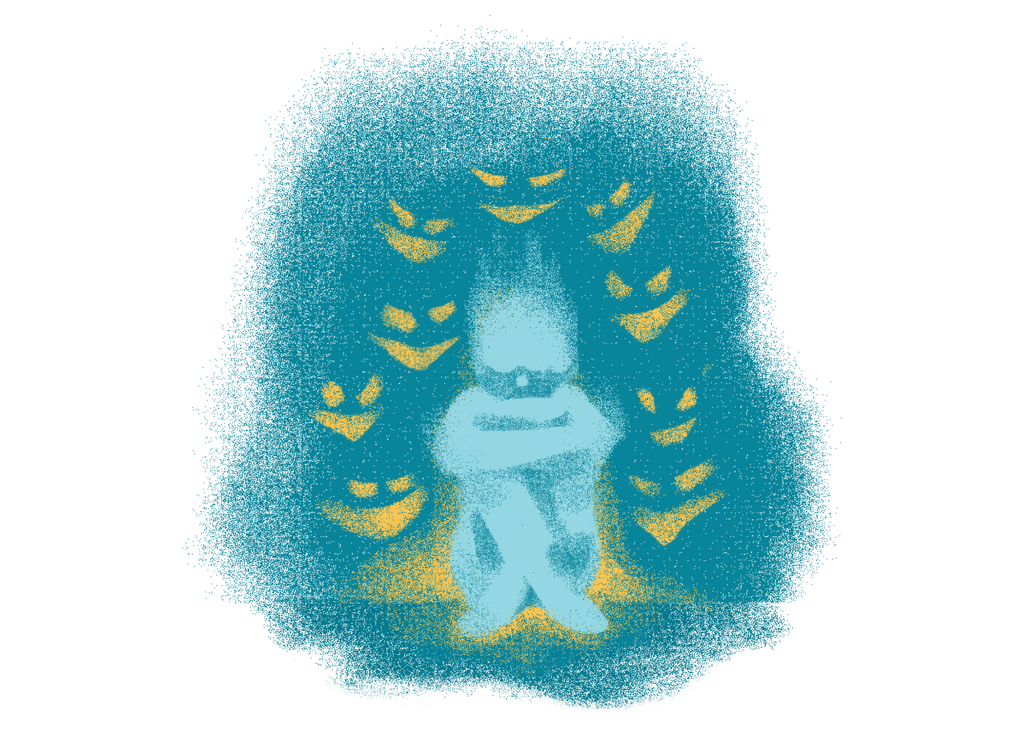
In all of those cases, but especially that last one, Qui-Gon would tell us to be mindful of the present. That just means, focus intently on the moment: what you’re doing, thinking, saying, engaged in. If you’re currently focused on thoughts, are they thoughts about the present moment, or are they wandering off somewhere in another time or place? Focusing too much on the future, or on a source of anxiety, detracts from your ability to fully experience the moment you’re in. If you can refocus away from those wandering thoughts or other distractions and return to the now, congratulations! You’re being mindful of the present moment like a good Jedi.
Right now, the moment you’re in is the chaotic return to classes (for most of you) or the stressful but exciting start of something new. Hold on to that thought for a sec while I tell you about my wedding day.
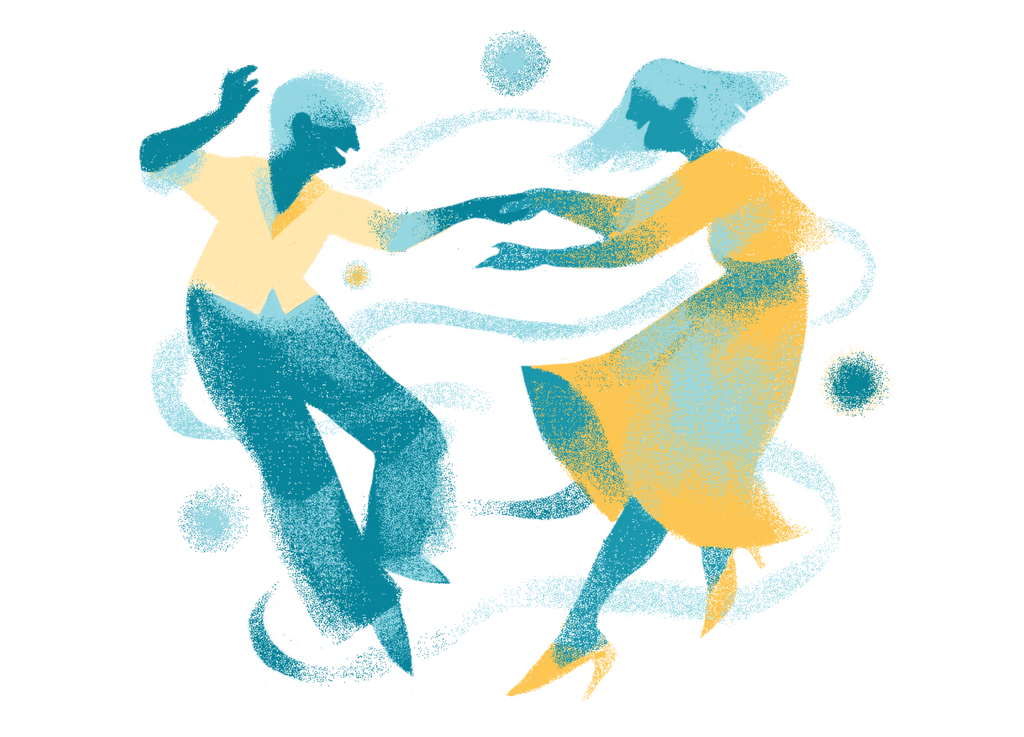
I got married just before my 37th birthday, having attended many weddings before that, getting to be part of the ceremony a few times. (I even officiated one, which was one of the biggest honors of my life.) I watched my friends during their wedding days and learned a few lessons that were vital to my understanding of how to make the most of my own. The most personally meaningful lesson to me was to be mindful of every moment.
I don’t have the best memory – part of this is a consequence of health stuff beyond my control, but part of it is also a long-term consequence of my cannabis addiction. I have issues storing new information into my long-term memory and I have issues retrieving memories efficiently. It’s no fun, especially for someone in a knowledge-heavy job like Prevention Specialist, and especially for a graduate student in public health which I also am, but I’ve found that mindfulness of the present moment is one way to help ensure information gets stored in memory. So staying present in the current moment, focusing carefully and really participating in each moment as it passed, was a key skill to have just to be able to remember my wedding day for any length of time.
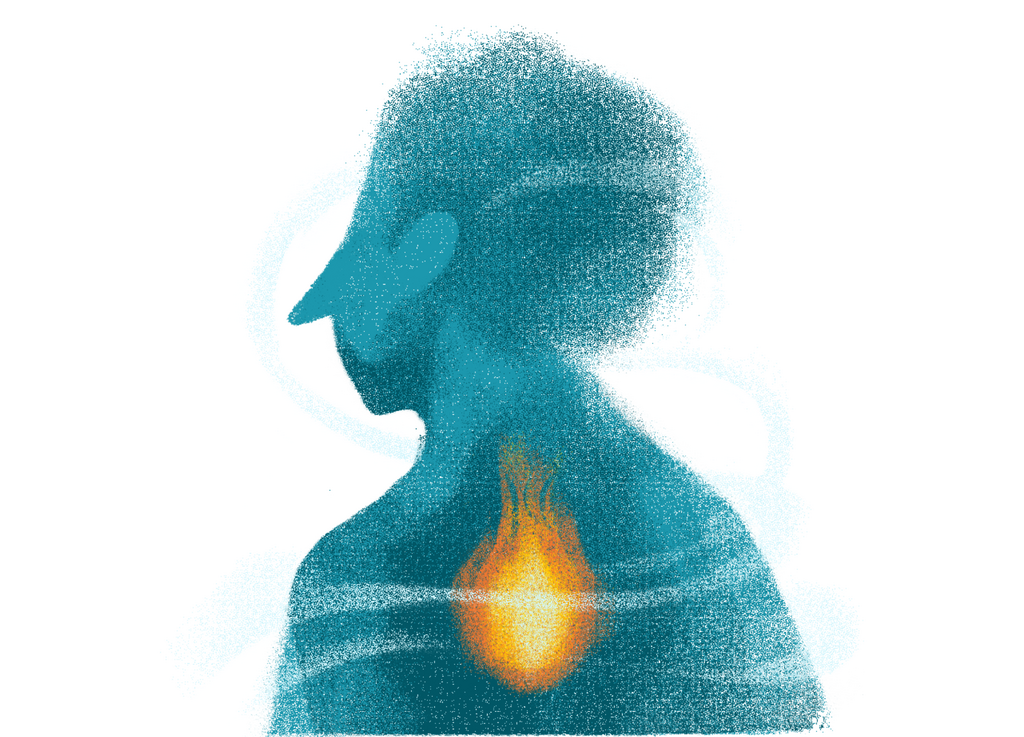
But it was also: 1) a huge way to reduce anxiety over such an important day – being mindful meant I wasn’t constantly worrying about things happening beyond my control; 2) a great way to enjoy the day more, as I wasn’t constantly trying to both be in the conversation I was in and also see what was going on with that loved one over there who seemed to be having a bunch of fun; 3) really challenging, because there were so many emotions I went through from moment to moment, as the emotional intensity of that day is impossible to overestimate. Much of the time, my brain tried to get lost in thoughts about other times and places – some thoughts were positive, some were negative, some were neutral, but all were distractions. Instead of reveling in some of those thoughts and feelings or wallowing in others, I reminded myself – verbally, if I had to – to be mindful of the moment. To bask in the joy of the day that was everywhere to be found, but to center myself in the present moment of joy and all its unique aspects.
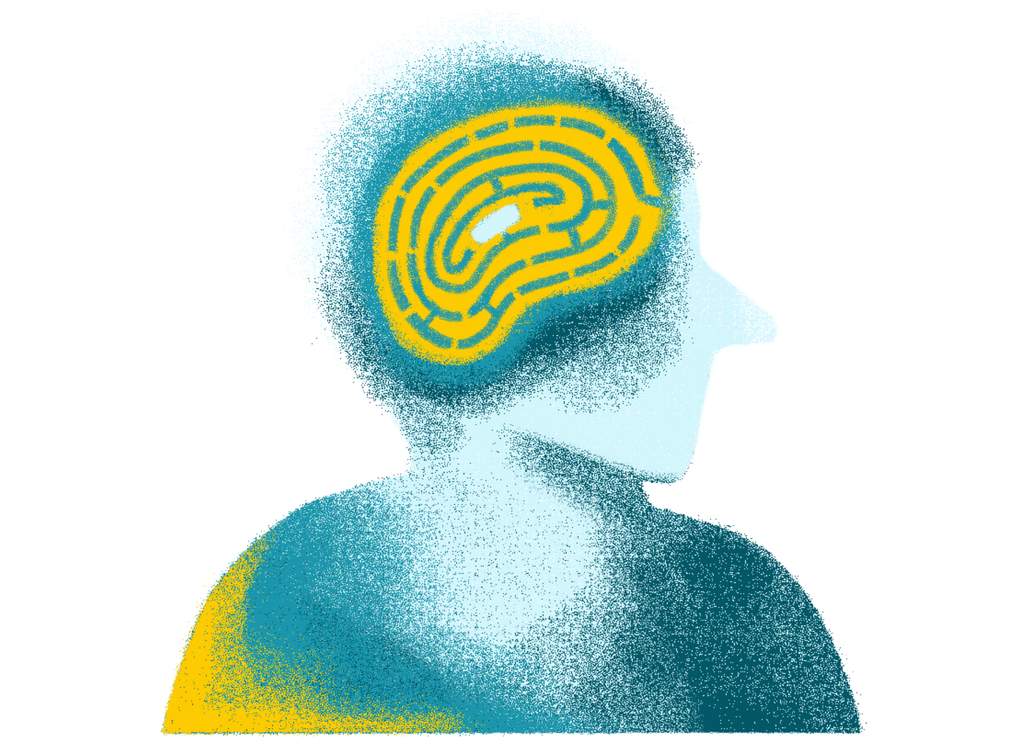
Okay, back to you. You’re in the first days of fall term (if you’re in school or college) or the heady days after high school graduation. Whatever is on your calendar, however the hours are blocked off, I hope you’ve planned some downtime. There’s never enough of it to go around, but mindfulness is a certain trick to maximizing the effectiveness of the time you do have to rest and recover. If you find yourself spending time meant to be resting or having fun instead engaged with automatic thoughts about the upcoming school year, about the stresses and anxieties to be found there, or even if your mind pulls you instead to the upcoming fun, remind yourself that you can block out time to plan the future later; this moment is for rest. This moment is for fun. Really live in those moments, direct your attention to your surroundings and the people in them. Soak up the rest – take naps! Naps are great – soak up the fun. You can’t literally store them for later, but you can certainly ensure that when your busy schedule resumes, you’re more rested and centered.
The best thing about mindfulness, to me, is that it’s always a practice. No mind is perfectly disciplined, if that mind is engaged in the daily stresses and distractions of living. Mindfulness is about being kind to yourself, being open-hearted with yourself; maximizing the benefits of the moment, diminishing the power of automatic thoughts to dictate your reality. If you notice your brain drifting away on a cloud of thoughts you don’t want to ride, that’s okay – just acknowledge it, let the thoughts pass, then return your focus to something that can cue you into the moment you’re in. I’m having to do it right now! Thanks, Qui-Gon.
For our next chat I want to circle back around on that “plan the future later” bit – let’s talk about transition times. Between schools, grades, extracurriculars, any of it.
(If you’d like other resources or to learn more about mindfulness, check out Change to Chill.)
